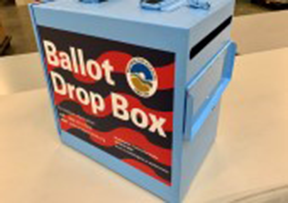WashCo news July 2023

County working on rules for homeless camping
Ordinance 896 was given its first reading during the Board of County Commissioners (BCC) meeting on June 27 (video here). The Ordinance responds to the state requirement (House Bill 3115) for all jurisdictions to enact “time, place, and manner” regulations to deal with people camping on public property.

Under the draft ordinance, restrictions are different depending on shelter capacity. Camping is prohibited when shelter is available. The shelter must be reasonably accessible to the individual camper. When shelter is not reasonably accessible (as defined in the ordinance) to an individual camper the sections that regard reasonable time, place and manner restrictions included below would apply.
Time: camping is limited to five calendar days in any otherwise allowable location or manner.
Place: camping is allowed in the public right-of-way and on public property with certain restrictions (see draft Ordinance)
Manner: Individuals camping on public property are only allowed “essentials” (i.e. sleeping bag, food & water) for living outside, Individual camping area should be no larger than 144 sq ft, Actions that may cause health and safety risks such as waste accumulation, non-cooking use of fire, dumping water used for cooking or cleaning, digging, and criminal activity are prohibited. Any camping in the public right-of-way must protect road safety for vehicles and the traveling public (i.e. bikes and pedestrians) and safety of individuals camping.
The Sheriff’s Office and the agencies that assist homeless persons have both agreed that five days is a reasonable time to allow camping before services and/or enforcement can be provided.
The second reading and a public hearing will be held on July 18, at which time the commissioners can enact, continue, amend, or reject the proposal. Meetings are hybrid (in person and virtual) at the Public Services Building, Auditorium, 155 North First Avenue, Hillsboro, and online via zoom. Learn how to testify here. The agenda and links will be posted on the BCC meetings page here.
Commissioner Fai expressed her hope that the county is working to address the causes of homelessness as well as providing regulations on camping.
County Budget adopted
The 2023-2024 county budget was adopted by the Board on June 20. The county had been facing a $23.5 million gap between projected spending and revenue. A press release on the county website explains the overall result. In general, the budget avoids staff layoffs, reduces reliance on one-time revenue sources, and protects services that impact community members’ daily lives.
“Despite the constrained resources available to us, our focus has been on supporting vital county services and stabilizing our financial foundation. I look forward to continuing the work of goal setting and prioritization as we move forward from here,” said Board of County Commissioners Chair Kathryn Harrington.
You can find a summary of how the county agencies you are interested in will be affected by reductions in this spreadsheet.
Franchise fees
Questions arose around the Franchise Fees that we pay to cable and other utility providers who use the public right-of-way. It’s usually a line item on your bill. It was clear that cities get the fees, but some wondered if the county receives the fees paid by those in the urban unincorporated areas, including Cedar Mill.
We finally got an answer from the Oregon Public Utilities Commission. “The Franchise Fee is a tax related to the Federal Cable Act and allows Comcast to collect the fee for use of the public right of way and easements. This fee is paid to the local government who is associated with the customer’s service address and can be a city or a county. Since you are not within city limits, this fee is paid to the county. Here is a link explaining the various taxes and fees Comcast charges to their customers.
County Treasurer and CFO Greg Munn said, “The Metropolitan Area Communications Commission administers the franchise agreements for the cities in (and partially in) Washington County. The county receives approximately $1.6M per year in fees but that number has been declining over the years.”

Election results
Official results were published in June for the May election. Washington County voter turnout for the May 16Special District Election was 22.7% with 87,437 ballots returned. The total number of ballots returned in this year’s Special District Election is approximately 1.3% lower than the May 2021 Special District Election. As of January 1, 2022, Oregon allows elections offices to accept and count ballots that are postmarked by Election Day and received no later than seven days after an election.
Visit washcovotes.org to stay informed about any upcoming elections for Washington County.





